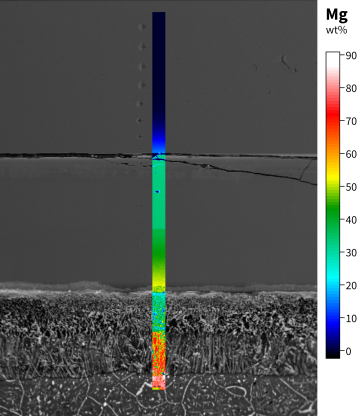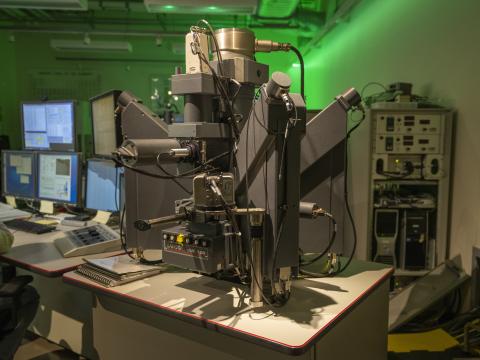Electron Probe Microanalysis (EPMA) is an elemental analysis technique that uses a focused beam of high-energy electrons to non-destructively ionize a solid specimen surface, which induces the emission of x-rays that are characteristic to the elements present.
Typical Applications
- Quantitative elemental analysis of materials
- Establishing bulk compositions at the micron to sub-micron scale
- Geological studies: mineral analysis, igneous petrology, etc.
- Metallurgical research and failure analysis
- Thin film composition determinations
- Semiconductor materials and ceramic analyses
- Anthropological and art history investigations

Instruments

CAMECA SX100 Electron Microprobe
- 5 wavelength dispersive spectrometry (WDS) Bragg spectrometers, each equipped with 2-4 diffraction crystals
- ThermoFisher Scientific System Six Silicon Drift Detector (SDD) for EDS
- Capable of simultaneous WDS and EDS acquisitions
- SE, BSE, and CL detectors
Instrument Contact: Julie Chouinard
